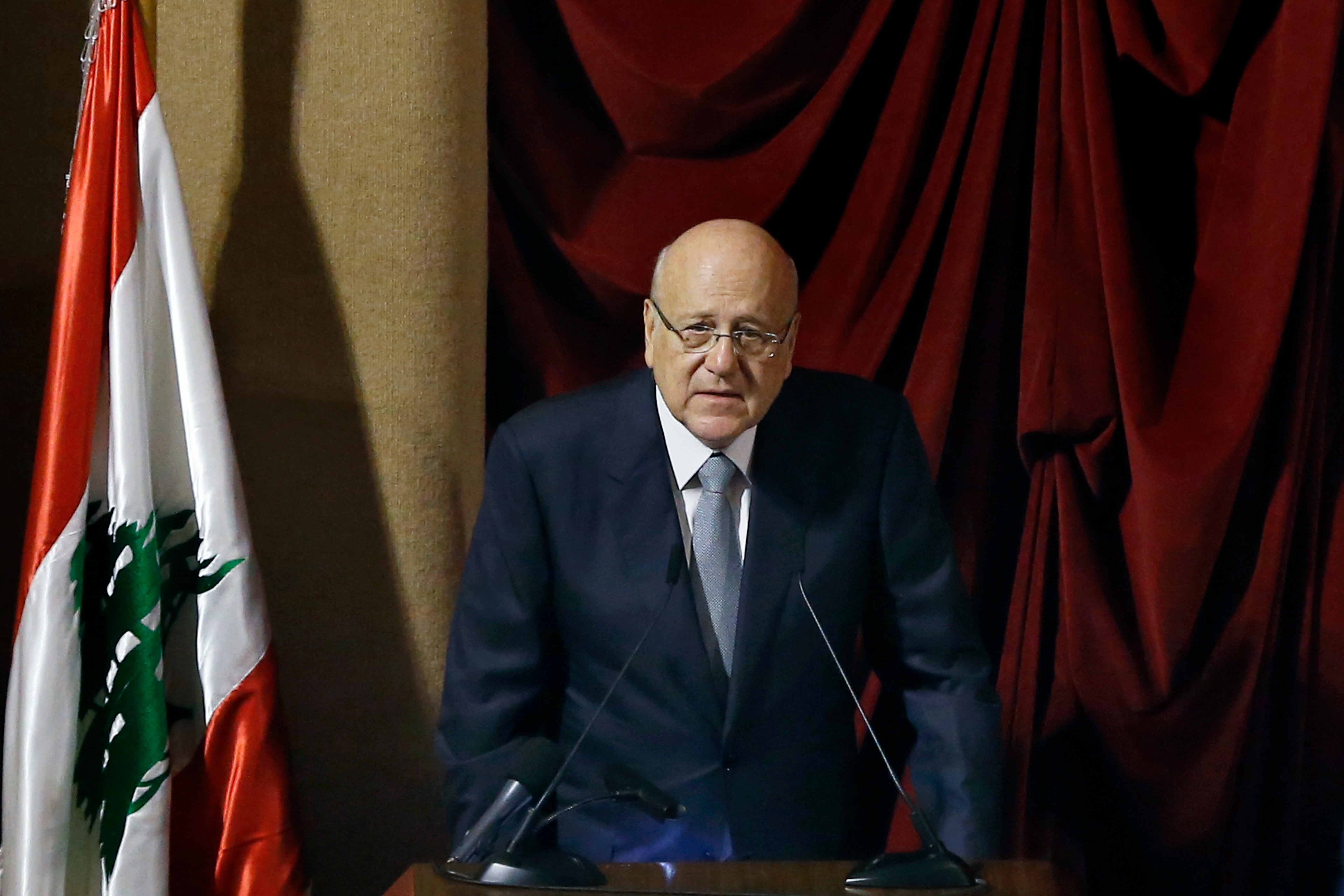After delay, Lebanese lawmakers convene to approve Cabinet
Lebanese lawmakers have convened to confirm the country's new government, following a power outage and a broken generator that briefly delayed the start of the parliament session

Your support helps us to tell the story
From reproductive rights to climate change to Big Tech, The Independent is on the ground when the story is developing. Whether it's investigating the financials of Elon Musk's pro-Trump PAC or producing our latest documentary, 'The A Word', which shines a light on the American women fighting for reproductive rights, we know how important it is to parse out the facts from the messaging.
At such a critical moment in US history, we need reporters on the ground. Your donation allows us to keep sending journalists to speak to both sides of the story.
The Independent is trusted by Americans across the entire political spectrum. And unlike many other quality news outlets, we choose not to lock Americans out of our reporting and analysis with paywalls. We believe quality journalism should be available to everyone, paid for by those who can afford it.
Your support makes all the difference.Lebanese lawmakers convened Monday to confirm the country’s new government following a power outage and a broken generator that briefly delayed the start of the parliament session.
It took some 40 minutes before electricity came back on. The incident, which underscored the deep crisis roiling the small Mediterranean country amid an unprecedented economic meltdown, was derided on social media.
Lebanese have been suffering electricity blackouts and severe shortages in fuel, diesel and medicine for months, threatening to shut down hospitals, bakeries and schools. Lines stretching several kilometers (miles) of people waiting to fill up their tanks are a daily occurrence at gas stations across the country.
The economic crisis, unfolding since 2019, has been described by the World Bank as one of the worst in the world in the last 150 years. Within months, it had impoverished more than half of the population and left the national currency in freefall, driving inflation and unemployment to previously unseen levels.
A new government headed by billionaire businessman Najib Mikati was finally formed earlier this month after a 13-month delay, as politicians bickered about government portfolios at a time when the country was sliding deeper into financial chaos and poverty.
The new government is expected to undertake critically needed reforms, as well as manage public anger and tensions resulting from the planned lifting of fuel subsidies by the end of the month. Lebanon’s foreign reserves have been running dangerously low, and the central bank in the import-dependent country has said it was no longer able to support its $6 billion subsidy program.
The government is also expected to oversee a financial audit of the Central Bank and resume negotiations with the International Monetary Fund for a rescue package.
Few believe that can be done with a government that leaves power in the hands of the same political parties that the public blames for corruption and mismanagement of Lebanon’s resources.
Lawmakers are to debate the new government’s policy statement before a vote of confidence is held on Monday evening — a vote which Mikati's proposed Cabinet expects to win with the support from majority legislators.
Mikati, one of Lebanon’s richest businessmen who is returning to the post of prime minister for the third time, pledged to get to work immediately to ease the day-to-day suffering of the Lebanese.
“What happened here today with the electricity outage pales in comparison to what the Lebanese people have been suffering for months,” Mikati told lawmakers after power returned and the session got underway.
The session is being held at a Beirut theater known as the UNESCO palace so that parliament members could observe social distancing measures imposed over the coronavirus pandemic.
“What can I say, it’s a farce,” lawmaker Taymour Jumblatt, the son of Druze leader Walid Jumblatt, said when asked about the electricity outage.
“It is not a good sign,” said lawmaker Faisal Sayegh. “We need to light up this hall, to say to people that we can light up the country.”